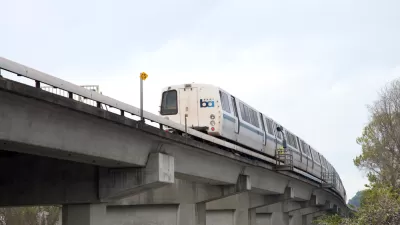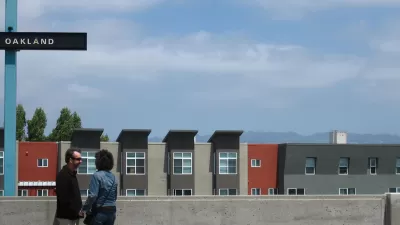The Google Bus protests got the media’s attention, and the Ellis Act has politicians' attention, but the Bay Area’s current tech-housing-gentrification crisis is a big, complicated mess.
“If you’re wondering why people are protesting you, how we got to this housing crisis, why rent control exists or why tech is even shifting to San Francisco in the first place, this is meant to provide some common points of understanding," writes Kim-Mai Cutler before launching into one of the most expansive and incisive pieces of online journalism in recent months (years? decades?).
The really, really long (don’t say we didn’t warn you) article includes 21 subheadings that frankly address components of the crisis, like rent control, supply and demand, and the “Twitter tax break.” Two particularly helpful subheadings provide distillations of all the current measures proposed by the city government (subhead 15) and the tech industry (subhead 16) to ameliorate the crisis.
But, writes Cutler, “none of this — the increased eviction protections, the push to stall the shuttle program under CEQA, Ellis Act reform – amounts to massive, systems-level change. It protects long-time residents who are already here, but it doesn’t make San Francisco affordable or available to future middle- or working-class residents.”
Meanwhile, tech companies are finding other places to do business, or, as Cutler puts it, “[the] high cost of living in the Bay Area is the rest of the world’s gain.”
The article concludes by delivering some tough talk to tech workers, homeowners in the city and on the peninsula, and activists. It’s all highly recommended reading.
FULL STORY: How Burrowing Owls Lead To Vomiting Anarchists (Or SF’s Housing Crisis Explained)

Planetizen Federal Action Tracker
A weekly monitor of how Trump’s orders and actions are impacting planners and planning in America.

Map: Where Senate Republicans Want to Sell Your Public Lands
For public land advocates, the Senate Republicans’ proposal to sell millions of acres of public land in the West is “the biggest fight of their careers.”

Restaurant Patios Were a Pandemic Win — Why Were They so Hard to Keep?
Social distancing requirements and changes in travel patterns prompted cities to pilot new uses for street and sidewalk space. Then it got complicated.

Platform Pilsner: Vancouver Transit Agency Releases... a Beer?
TransLink will receive a portion of every sale of the four-pack.

Toronto Weighs Cheaper Transit, Parking Hikes for Major Events
Special event rates would take effect during large festivals, sports games and concerts to ‘discourage driving, manage congestion and free up space for transit.”

Berlin to Consider Car-Free Zone Larger Than Manhattan
The area bound by the 22-mile Ringbahn would still allow 12 uses of a private automobile per year per person, and several other exemptions.
Urban Design for Planners 1: Software Tools
This six-course series explores essential urban design concepts using open source software and equips planners with the tools they need to participate fully in the urban design process.
Planning for Universal Design
Learn the tools for implementing Universal Design in planning regulations.
Heyer Gruel & Associates PA
JM Goldson LLC
Custer County Colorado
City of Camden Redevelopment Agency
City of Astoria
Transportation Research & Education Center (TREC) at Portland State University
Camden Redevelopment Agency
City of Claremont
Municipality of Princeton (NJ)





























